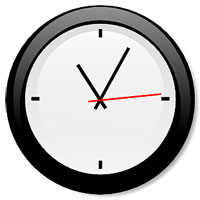Interfax: Matviyenko: Russia to restore standard time once and for all

MOSCOW. July 8 (Interfax) – The Russian authorities have decided to restore standard “winter” time once and for all, Federation Council Chairperson Valentina Matviyenko said.
“I can assure you that this decision is serious and for the long haul. No one will make further changes, especially as federation constituent territories have actively contributed to this issue, including the determination of time zones in the territory of the Russian Federation,” she told reporters in Moscow on Tuesday.
“In my opinion, the time shift was not dramatic. Well, we tried, we heard public opinions and lots of good things said about us and responded appropriately,” Matviyenko said.
“This is a compromise of the Federal Assembly and the government; there will be no shift from standard to daylight saving time and back and we will operate in a single regime. We have adjusted time with due account of public wishes,” she said.
On July 1 the State Duma passed in the second and third, final, readings the bill which restored standard “winter” time in Russia.
The law said the country would fall one hour back on October 26, 2014.
The government said earlier the restoration of standard “winter” time was not expedient. The government twice posted negative opinions about applicable draft laws and said it would not discuss the issue again.
The then Russian President, Dmitry Medvedev, said on February 8, 2011, the shift to standard “winter” time would be abolished in fall 2011. Russia shifted to daylight saving time in spring 2011 and did not fall back to standard time in fall. Then Russia became the only country on earth which had daylight saving time all the year round.
Under the bill, Moscow time corresponds to the UTC (SU) +3 time zone on the national time scale. There is no seasonal change of clocks.
Russia will have eleven time zones. The time zones will be designated and numbered in accordance with the Coordinate Universal Time (UTC) standard.
Moscow time is used as a standard time for local times in Russian time zones.
Time zone 1 (Moscow time minus one) will cover the Kaliningrad region. Time zone two will include, in particular, Moscow, St. Petersburg, Republic of Karelia, Republic of Komi, Republic of Crimea, Republic of Tatarstan, Chechen Republic and Sevastopol.
Time zone 3 (Moscow time plus one) will include the Republic of Udmurtia and Samara region. Currently, the Samara region lives under Moscow time.
Under the bill, Time zone four (Moscow time plus two) includes the Republic of Bashkortostan, Perm Territory, Kurgan region, Orenburg region, Sverdlovsk region, Tyumen region, Chelyabinsk region, and the Khanty-Mansi (Yugra) and Yamalo-Nenets Autonomous Districts.
Time zone 5 (Moscow time plus three): Republic of Altai, Altai Territory, Novosibirsk region, Omsk region and Tomsk region; Time zone six (Moscow time plus four): Republic of Tyva, Republic of Khakassia, Krasnoyarsk Territory, Kemerovo region; Time zone seven (Moscow time plus five): Republic of Buryatia, Transbaikal Territory, Irkutsk region; Time zone eight (Moscow time plus six) will include, among others, several regions in Sakha Republic (Yakutia), the republican city of Yakutsk and the Amur region.
Time zone nine (Moscow time plus seven): several regions in the Sakha Republic (Yakutia), the city of Yuzhno-Sakhalinsk, and the Jewish Autonomous region; the tenth time zone (Moscow time plus eight): several regions of the Sakha Republic (Yakutia), Sakhalin region (North Kurils); and the eleventh time zone (Moscow time plus nine): Kamchatka Territory, Chukotka Autonomous District.
The Federation Council will hear the bill restoring standard “winter time”, which has been passed by the State Duma, on July 9.
